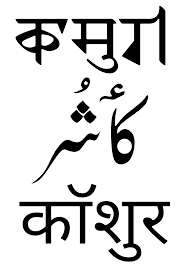Language/Kashmiri/Grammar/Conditional-Mood
Hi Kashmiri learners! 😊
In today's lesson, we will be discussing the conditional mood in Kashmiri grammar. We will look at how to form sentences in the conditional mood and how to use them in everyday conversations.
What is the Conditional Mood?
The conditional mood is used to express a hypothetical situation or an event that could happen in the future. It is used to express a wish, a desire, a possibility, or a condition.
For example:
- If I had more time, I would learn Kashmiri.
- If I were you, I would take the opportunity.
- If it rains tomorrow, we will stay home.
How to Form Sentences in the Conditional Mood
The conditional mood is formed by using the verb "to be" (in its various forms) and the word "if".
For example:
- If I am (I'm) late, please wait for me.
- If she were (she's) here, she would help us.
- If they had (they'd) more money, they would buy a car.
How to Use the Conditional Mood in Everyday Conversations
The conditional mood can be used in everyday conversations to express wishes, desires, possibilities, and conditions.
For example:
- If I had more time, I would visit my family.
- If I were you, I would take the job.
- If it rains tomorrow, we will stay home.
It can also be used to make polite requests or suggestions.
For example:
- If you could help me, I would really appreciate it.
- If you have time, why don't you come over for dinner?
- If you need help, just let me know.
If you have any questions, please ask them in the comments section below.
Feel free to edit this wiki page if you think it can be improved. 😎
Related Lessons

